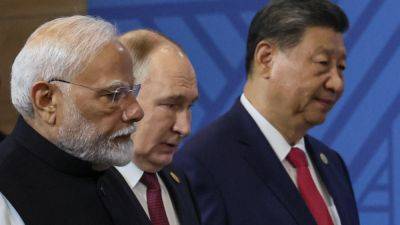Will China’s surprise stimulus work?
Subscribe to enjoy similar stories. The best week in 16 years for China’s stock market was built on hope. Worse, it was built on hope for more state intervention, one of the reasons its economy is in such trouble to start with.
Start with the hope. China went for a triple boost last week: cuts to interest rates and other easing, loans to investors and to companies to buy back their stock, and a promise of something “fiscal" in yet-to-be-defined size. Investors loved the idea of central bank support for share buying, not surprisingly.
No need to rely on the “national team" of state-directed buyers that stepped in after the 2015 bubble popped if the central bank will support prices directly. But it was the politburo’s use of the word “fiscal," and its surprise decision to focus its September meeting on the economy, that really fired up the hopes. If China starts doling out trillion-yuan ($140 billion) stimulus here and there, could it get the economy out of its housing-induced slowdown? The parallel for investors is 2008, when China was the first to launch massive stimulus in response to the global financial crisis.
It worked, and investors remember. But the stimulus also left China with a legacy of huge local government debt, overcapacity and excess housing, worsened by the country’s subsequent failure to shift from state-directed investment to household consumption. The last stimulus mattered hugely to investors outside China too, as the country sucked in resources for its infrastructure binge and helped support global demand.
Read more on livemint.com


 livemint.com
livemint.com



















